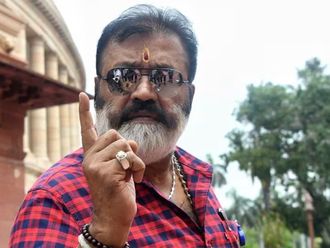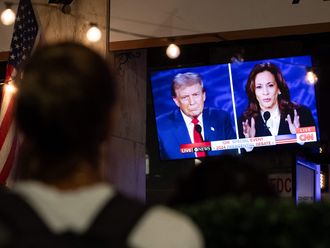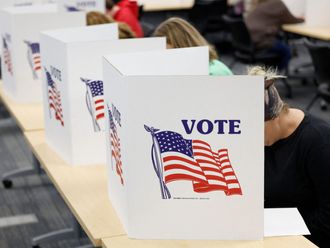Mumbai: The next time your little boy or girl's tooth falls, don't leave it for the tooth fairy to take away.
Parents are now being urged to store their child's milk teeth in a dental stem cell bank.
Such a bank, called "Store Your Cells" has been started for the first time in India by dentists and paediatricians at Dhruv Polyclinic in the Mumbai suburb of Mulund where a laboratory is being set up.
"Until then, we will be sending the samples to a US lab for storage," Polyclinic director and lead clinician Dr Kedar Gadgil told Gulf News.
Stem cells are obtained painlessly from teeth which are about to fall out or are to be extracted, then isolated and stored in a science lab for as long as required.
"Our lab's processing and quality control procedures will follow the strictest standards in stem cell banking and are AABB (American Association of Blood Banks) accredited, Food and Drug Administration registered and compliant, Clinical Laboratory Improvement Amendments certified, and licensed by the Department of Health in New York, Massachusetts and California," Dr Gadgil said.
Dr Gadgil said that parents normally discard milk teeth of their children when they fall out.
He said children's milk teeth, and wisdom teeth, were a rich source of stem cells. "Dental stem cells are potent stem cells that have been shown to be able to generate many cell and tissue types like bone, nerve, cartilage, teeth and fat," he says.
Scientists around the world continue to unlock the potential of dental stem cells, which they believe have a very broad range of potential applications in regenerative medicine.
Unlike umbilical cord blood cells which have to be immediately collected at birth, dental stem cells can be derived from 12 viable milk teeth in a course of five to six years when a child's teeth fall.
Therefore, the chances of finding viable stem cells is higher as compared to other sources of stem cells. "Moreover, just two or three teeth are enough to obtain the stem cells," he said.
Dr Gadgil, who is also a successful implant dentist practising in London, Kent (UK) and Mumbai, said the cells would be stored as long as the clients want it.
Charges start at Rs75,000 for the procedure and storage in the first year and subsequently Rs5,000 every year. In another scheme, a payment of Rs150,000 is made for the entire procedure for 20 years. Though this is a new concept, "we have already had our first few patients whose samples have been sent to the US for storage," he said.












